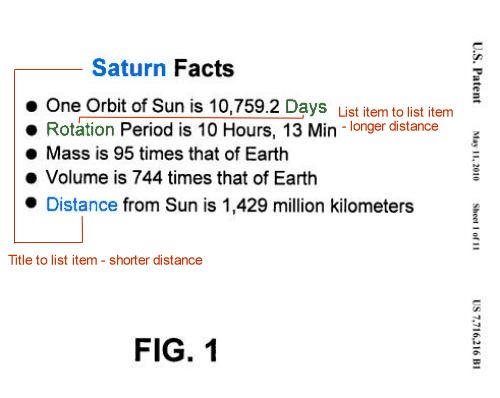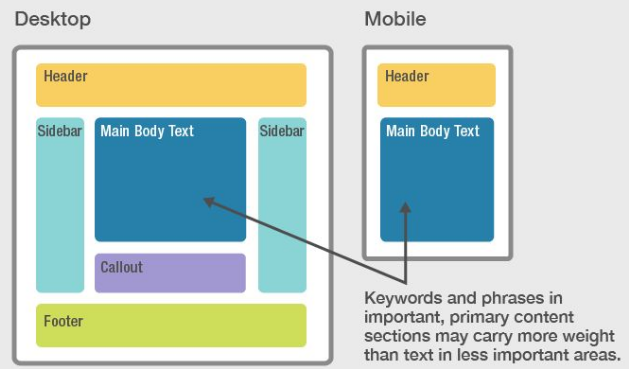As a writer, I think I speak for all of us when I say that we’re not big fans of complicated things like math.
Grammar is bad enough, but now you want us to start dealing with SEO? I was quick to reject the idea at first, but when you break it down, advanced on-page SEO is not only approachable, but learning it will make you a better writer in general.
Today I’ll show you several major SEO concepts but don’t freak out, we’ll break them down into actionable strategies that you can use to improve your organic search ranking and your writing chops.
After that, we’ll look at an infographic packed with additional information on how to maximize your success as a writer.
5 Advanced On-Page SEO Concepts For Writers
To get started, let’s take all of the complicated inner workings of SEO and translate them into simple but valuable skills for writers to use when they publish content online.
When making a website with On Blast Blog, I always remind new bloggers to check out the latest in SEO best practices.
In the spirit of that, here are five crucial SEO concepts you can implement into your writing, and add to your SEO checklist.
1. TF-IDF (term frequency-inverse document frequency)
As part of several Google patents, TF-IDF is one of the more important ways that search engines categorize, rank, and index content on the web. At it’s most basic level, it works by examining the importance of keywords based on expectations gathered from a larger set of similar documents.
To put this into a writing perspective, let’s take two terms and place them into Google’s Ngram viewer.
As you can see, I’ve placed “Base” and “Baseball” into the graph. While “base” is very common, you’ll notice that “baseball” is more rare.
This tells us that the appearance of “baseball” is more significant that the word “base.” While this tactic on its own won’t make or break your efforts, it will help you better understand the importance of your keyword selections.
2. Synonyms and Close Variants
Our next concept will allow us to see how Google sifts through the billions of searches it receives each day. To better understand what people are looking for, Google will often use synonyms to find other relevant content and narrow down the search user’s intent.
As an example, if someone searches “Cat Pics” Google can interpret this search by looking for other matching keywords like the following:
- Cat Photos
- Feline photos
- Cat photographs
- Pictures of cats
As writers, we can use this knowledge to better choose natural language and terms that are directly related or similar in meaning to the main keyword we’re trying to rank for. This allows us to vary up the types of words we use for a more robust page of content.
3. Page Segmentation
When we write content, we generally write in a style that feels most natural to us.
But SEO requires that we pay attention to where the words appear. In fact, this can often be just as important as the words you choose to use themselves.
For example, words that appear in the main body of the post will hold more weight with search engines, than say, a side bar or a footer.
This also applies to duplicate text. If you repeat yourself exactly in another section, it still counts as part of the page, even if it’s not within the main body.
While this basic concept of page segmentation seems simple enough,things become more complicated when we add in the need for mobile responsive designs.
As you might have gathered, the mobile version of a site should also be considered. The most important writing should be placed front and center in these modified resolutions for tablets and smartphones.
Last but not least, concise HTML tags should also be used to create clear-cut organization for your articles.
4. Semantic Distance and Term Relationships
Moving further into the organization of the page, writers should also be aware of semantic distance. This refers to the way terms connect to each other within the same sentence, paragraph, or through HTML elements.
This is how search engines are able to understand and interpret relationships between things like “liquor brands” and a specific brand like “Jim Beam”. The distance between related terms, both physically and through HTML, helps sites like Google understand the flow of your writing.

In essence, remember that distance matters. Two terms in the same paragraph are considered more closely related that terms separated by several hundred words of text.
5. Entity Salience
This is perhaps the highest concept we’ll discuss today, but it’s an important one for writers to understand.
The ultimate goal of search engines is to provide users with the exact content they need. To do this, new concepts like entity salience are exploring ways that algorithms can look at our writing and understand how it relates to specific concepts or “entities.”
This concept steps beyond the boundaries of simple keywords and instead utilizes a known database of relationships between entities. An entity would be considered anything in the document that is both specific and well-defined.
The more you can draw connections between your entities on a page, the stronger that individual concept becomes in the eyes of search engines. As writers, we can think of this as a way to strengthen our main keywords by leveraging known entities that relate to it.
An example that I like to use for this concept is the popular HBO series, “Game of Thrones.” Let’s say you’re doing an article on the series and you want to bring as many related entities into the picture as possible. Great, then you would want to go into detail on a number of topics like the ones below:
- Jon Snow
- House Stark
- House Lannister
- Cersei Lannister
- Arya Stark
- Whitewalkers
- Westeros
- Mother of Dragons
- Daenerys Targaryen
- HBO
- George R.R. Martin
Concepts like these tie directly in to your subject matter because they are known entities in the show’s universe. These references will strengthen your main entity by tying everything together.
Finding Your Writing Success (Infographic)
Now we wrap things up with an infographic that will help you find the success you want and deserve as an online writer. Let us know how these tips improve your writing in the comments!

Guest Author
Matt Banner is a seasoned blogger and entrepreneur with a decade of experience in the online world of blogging, SEO, and marketing. You can find him online @BlastYourBlog.









